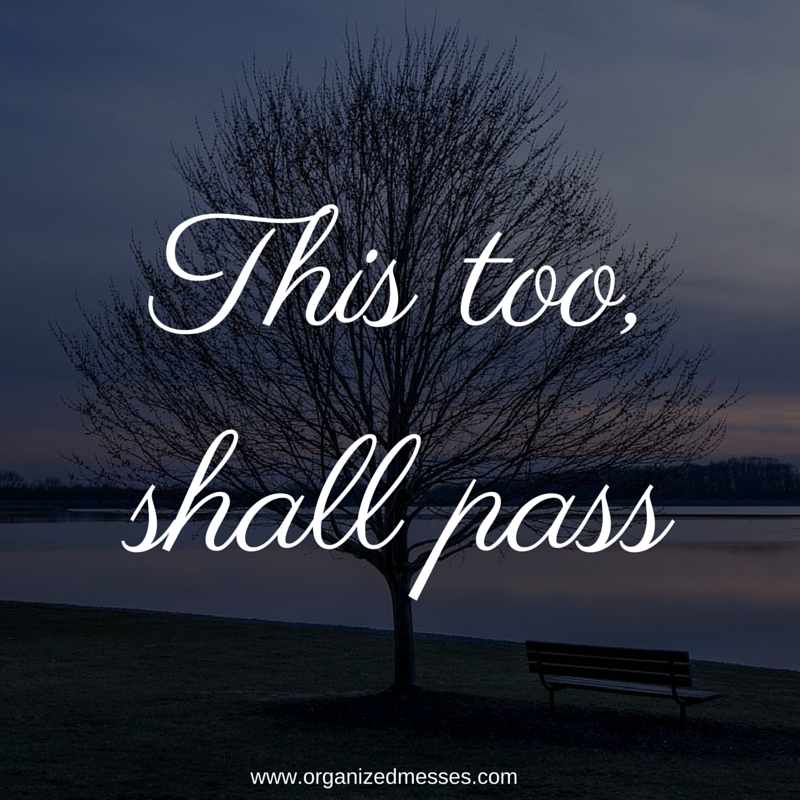It's not easy seeing a friend or family member suffer with moments of sadness. It can even be difficult seeing a stranger cry in public. Sometimes the discomfort comes from not knowing what to do. Do you hug them? Give them a taco? Do you tell them to forget about it? What do you do when someone is sad?
Here are 8 Ways to Help a Person Who is Sad:
1. Reflect Their feelings
You may not know exactly how they feel, but lots of people feel safer to share sadness and speak when they feel understood. "I may not know exactly what you're going through, but it sounds like x, y, and z, is really tough for you right now." NOTE: "I know how you feel" can be perceived as insulting. Sometimes we will never know how deeply in pain someone is, and it's a very sensitive topic to assume.
2. Say You're Here For Them
Some people need to be alone when they're sad. It's comforting to know someone is around, even if you need space at the moment. It's nice to know you're not alone, especially when you're sad. "I see you need space right now, but I am here for you if you need to talk."
3. Sit With Them
Sometimes sleeping in can help while processing feelings of sadness. a blanket fort might be the remedy for some of us when we're sad!
This may work with some people, it may not work with others. (Check in with people who need space first). Sometimes a person who is sad doesn't really know what to say when they're sad. They just FEEL SAD. Instead of interrogating or trying to fix things, a gesture of connection can be to sit with them in the space. This also takes trial and error. Some people need a personal bubble around them when experiencing intense emotions.
4. Guide Them to a Safe Space
When we're sad, we're emotionally hijacked at times. This means, it may be difficult to process logically. When this happens, it's a wonderful gesture to help guide a person who is sad to a safe space. If you're in a public space, perhaps getting coffee or tea can help. Offering a blanket or coat might also help. This, of course, depends on the person who is sad's openness to receiving help. If this person is a loved one at home or in the car, it can be a loving gesture to make a blanket fort for them to be safe to cry or process.
5. Remind Them They are Worthy of Love
Sometimes, people who are sad have experiences where people leave or run away because they can't "deal with" them when they are sad. This statement takes honesty and can increase connection. Lots of people who battle depression or sadness feel they are unworthy of love. A way to help is to remind them their worth is separate from this moment of sadness, that they are still loved, even when sad.
6. Remind Them This Shall Pass
Does this mean the event is insignificant, or that the moment will not reoccur? No. Lots of sadness can come from unprocessed griefs, or uncontrollable physical ailments. These events are impactful, and painful. People have a right to be sad, and fully experience the emotional experience. Reminders that this sadness will lift, can help encourage people to sit with sadness. Denying or resisting sadness can prolong the negative emotional experience.
7. Seek to Understand
Lots of people who are considered "emotional" have been implicitly told that their emotions aren't logical or important. It may be difficult at first, but a simple question of, "Do you want to tell me about it?," can open doors to releasing so much unaddressed pain. Some people may feel ashamed or judged for being sad for the reasons they have. Asking questions is different from demanding reasons for being sad. Minimal questions (too many questions can feel like an interrogation) can help establish connection and safety to share more in the future.
8. Be Patient With Them
Learning how to share vulnerability takes time, and lots of practice. It's like learning how to acknowledge a hidden part of yourself to someone who really wants to understand. It can be wonderful, yet scary at the same time! Being patient with one's responses (instead of reacting) can help strengthen relationships and increase positive communication.
Hopefully, some of these tips can work out with you and someone you know who experiences sadness. Establishing a routine, or learning what your "patterns" are with sadness or intense emotions can help identify which will work, and which won't. It might be beneficial to speak with a therapist to see how they can help in the beginning if emotions are very very intense and difficult to work through.
If you are looking for a therapist, your local psychology graduate program has counseling centers that offer low-cost or even free sessions based on income. In Orange County, you can call 211 for mental health resources, or visit Orange County Shrinks on Facebook to get a few referrals.


